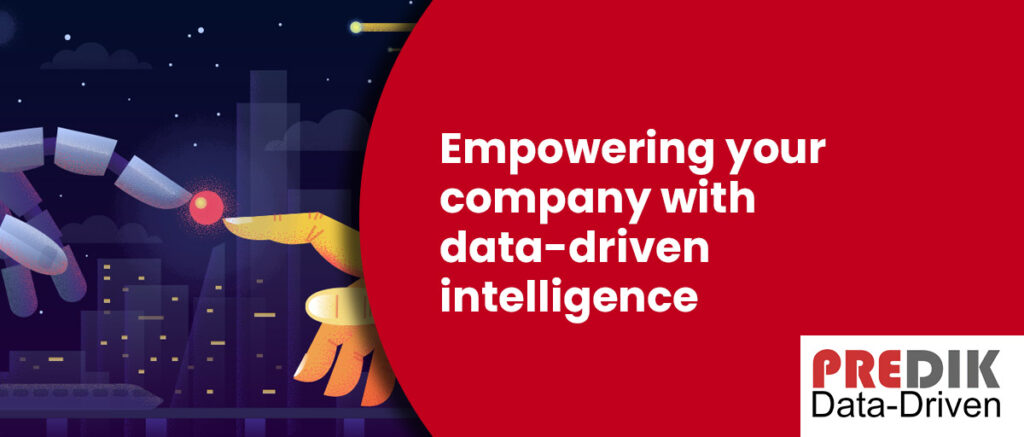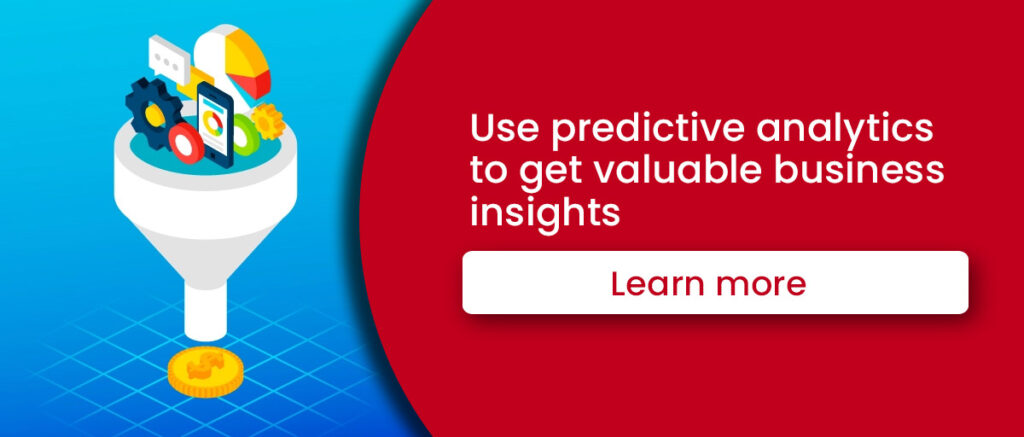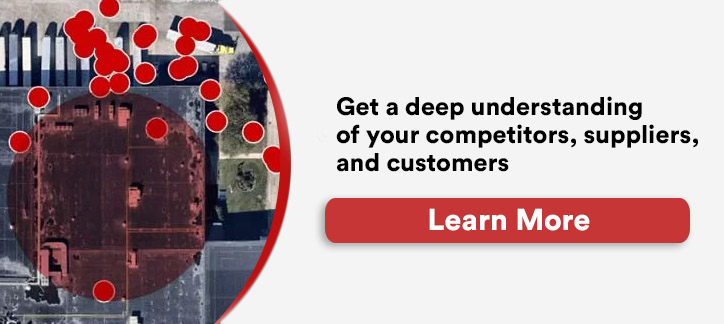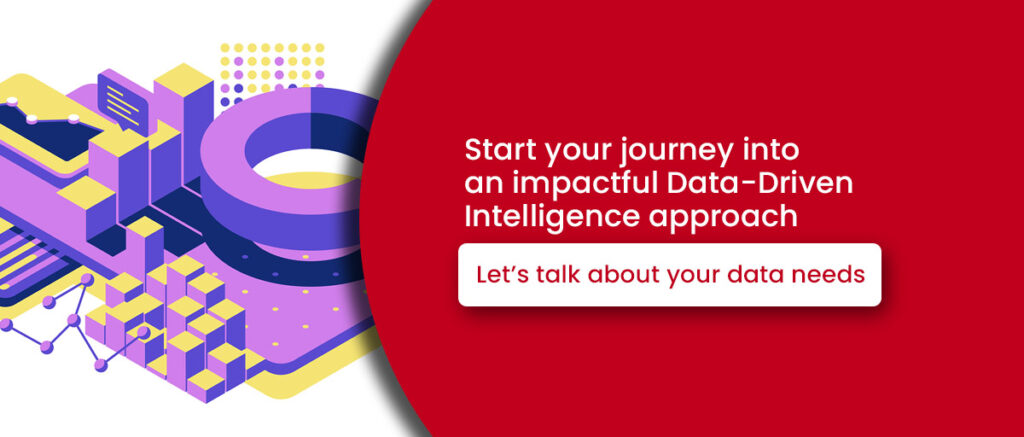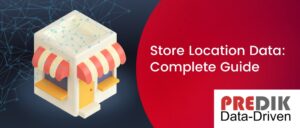Most organizations agree in something: Data has become one of the most valuable assets when growing a company.
In a business panorama where BI goes beyond mere intuition, internal knowledge, and assumptions based on expertise, a data-driven approach has come to add accuracy, timing, and relevancy to the equation.
Now, most companies struggle to extract and use data to gain relevant insights consistently, clearly, and efficiently. This is why “data-driven intelligence” has become part of the vocabulary of organizations to increase their impact on the market and make decisions even on unclear competitive landscapes.
In this article we will cover:
What is data-driven intelligence?
Data-driven intelligence (DI) uses data to extract essential insights, make informed decisions, and optimize processes across different industries. It combines large data sets, advanced analytics, AI, and Machine Learning technologies to uncover previously hidden patterns and trends.
At its core, data-driven intelligence transforms raw data into a powerful tool for understanding, making decisions, and predicting future outcomes. It uses different data disciplines, such as descriptive, prescriptive, diagnostic, decisive, and predictive analysis, to comprehensively view operations and customer interactions.
In practical terms, data-driven intelligence enables entities such as retailers, manufacturers, financial institutions, logistic companies, and real estate agencies (Among others) to refine their strategies. Intelligent data help transform historical information into meaningful insights and provide a strong foundation for big data and business intelligence.
Businesses can make informed decisions and adapt to market changes by identifying patterns and leveraging advanced analytics. Data-driven intelligence empowers organizations to streamline processes and stay ahead in a rapidly evolving business landscape.
A combination of data intelligence and data analytics
“Data intelligence” and “data analytics” are two distinct methodologies within business data management.
On one hand, data intelligence collects and synthesizes data using AI and Big Data to understand past events. On the other hand, data analytics leverages insights from data intelligence to predict future events.
Together, and with the addition of the “data-driven” component, they enable businesses to look backward to understand the past and forward to anticipate the future.
What does a data-driven intelligent company look like?
Usually, a company that accomplishes a tangible data-driven intelligence approach has the following features:
- Learns how to maximize the value of their data and knows how and when to enrich it with new sources of information.
- Approaches data as a strategic element in every decision-making process.
- Use “out-of-the-box” solutions to approach challenging problems.
- Knows how to drive business value using data insights.
Why is data-driven intelligence so important for businesses?
Data-driven intelligence (DI) represents a paradigm shift in how companies approach decision-making, strategy formulation, and operational efficiency.
By incorporating Big Data, Artificial Intelligence, and advanced analytics into their operations, companies gain access to unprecedented insights and capabilities.
Improved Decision-Making
Data-driven intelligence significantly enhances organizational decision-making by providing decision-makers with valuable insights based on “hard” data.
Integrating factual information with intuitive judgment leads to a deeper understanding of risks and potential outcomes, ensuring that decisions align closely with business objectives.
Moreover, DI offers diverse viewpoints and the flexibility to examine data from different perspectives, thereby ensuring well-informed and more rounded-decisions. Overall, embracing a data-driven approach to decision-making can lead to better business outcomes and improved organizational performance.
Enhanced Efficiency in Decision-Making
Data-driven intelligence can significantly enhance the efficiency of decision-making processes.
Integrating business intelligence (BI) methodologies with machine learning algorithms allows organizations to focus on crucial areas that require high confidence and judgment.
Greater Efficiency in Using Data Insights
DI-based solutions are game-changers for managing data insights in organizations. They simplify accessing and utilizing complex data sets, especially when dealing with vast information.
These tools prevent decision-makers from feeling overwhelmed by filtering out irrelevant data and focusing on information relevant to the business. This streamlines generating and applying insights, making it easier to take action based on the available data.
Increased Confidence in Utilizing Data Insights
The correct data intelligence process can present information in a more understandable format and seamlessly “connect” insights more professionally and intuitively.
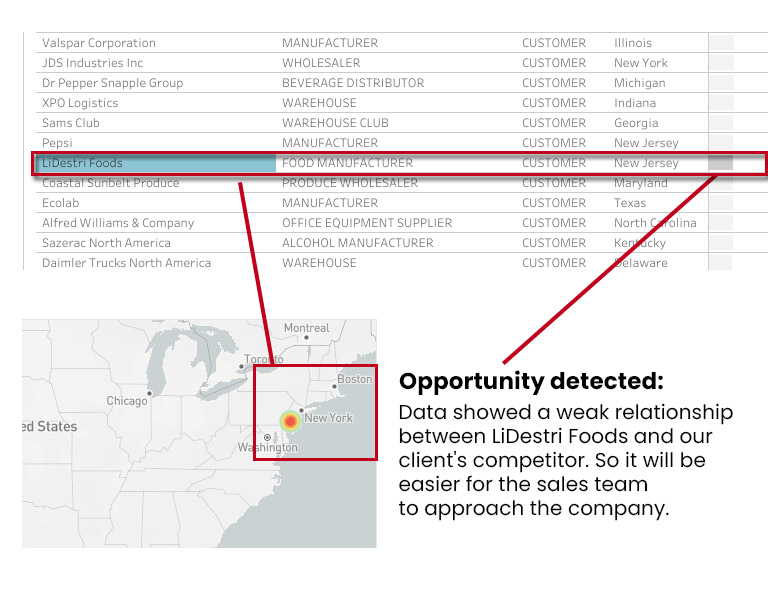
This approach enhances decision-makers’ comfort and confidence in leveraging data for strategic purposes.
High-Quality Data Access
Data quality is critical in decision-making, and a DI approach ensures access to high-quality data. Companies can make more effective decisions by filling the loops between different work teams and the information they can access.
Predictive Analytics Approach
With DI’s Big Data analysis capabilities, organizations can detect new patterns and take proactive measures. This foresight empowers companies to use their resources more efficiently by identifying trends and behaviors before they become apparent.
By anticipating market changes or operational needs, businesses can stay ahead of the curve.
Synergy between different data sources
Different sources of information help companies enhance their strategic processes. A solid data-driven intelligence allows a better understanding of the organization’s best combination of data sources, from historical data to external, alternative, and near-real-time data.
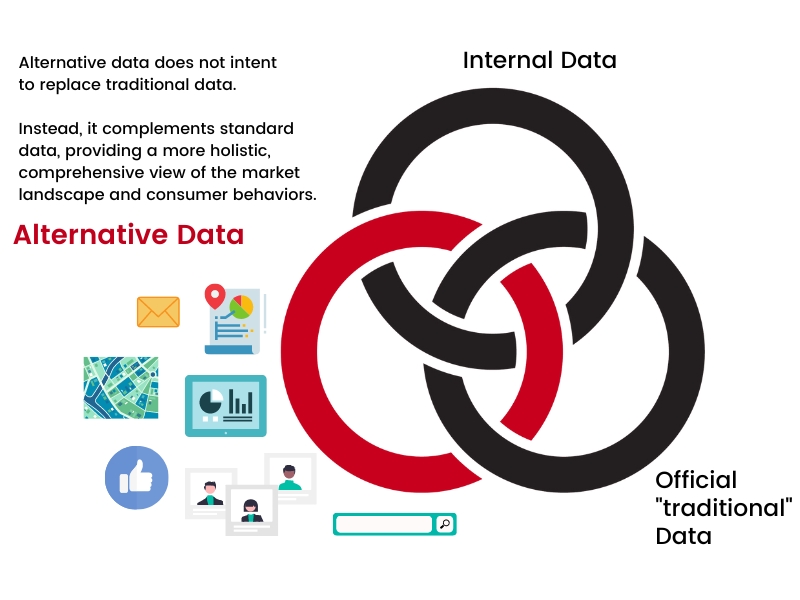
Competitive Advantage
DI offers a substantial competitive advantage. It enables a deeper understanding of operations and customer behaviors, allowing businesses to innovate, adapt, and stay ahead of their competitors. This advantage is about having data and effectively interpreting and applying it to strategic decisions.
Understanding Behavior and Trends
Another significant benefit of DI is leveraging data analytics to examine behavior and trends. This process involves interpreting substantial amounts of data, which can help companies gain insights into customer preferences, market trends, and operational inefficiencies at a deeper level.
Understanding this information is crucial in developing targeted strategies and enhancing customer engagement.
Cross-Functional Impact
A data-driven approach can benefit all company departments: marketing, finance, HR, and operations. DI improves efficiency, strategy, and effectiveness, leading to superior business operations.
The challenge you need to overcome
Since almost half of organizations say it’s not easy to use data to make a difference where it matters most, developing a DI approach can be challenging for any company, regardless of the industry.
Understanding where your company is in the data-driven journey
There are different stages a company should go through to become a DI organization. That is why it is essential to understand your current data stage and take the necessary steps and strategies accordingly.
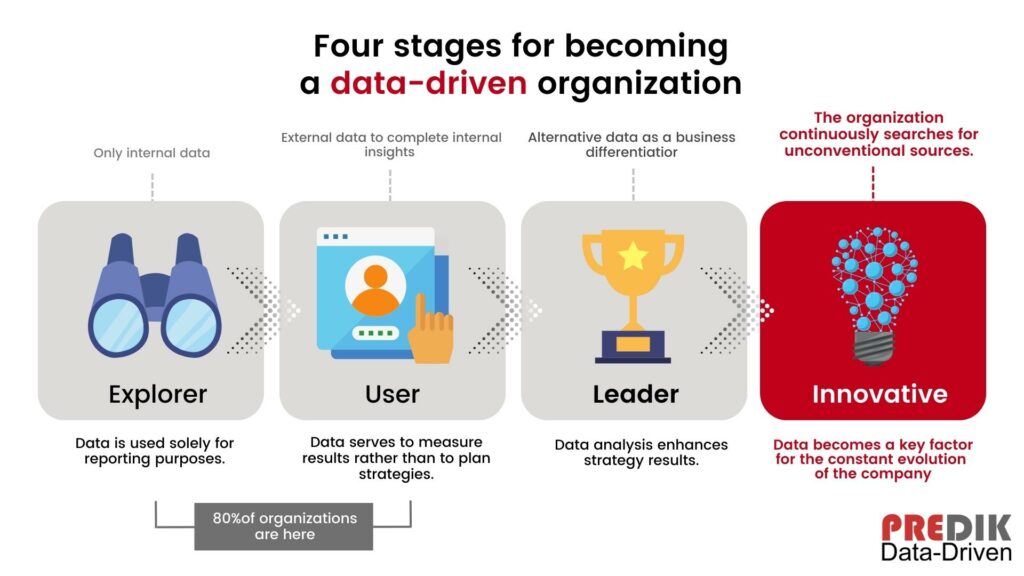
We recommend you reading: Is Your Company Data-Driven? (Let’s Find Out)
Lack of clear objectives and results
When thinking about “data-driven” and “Big Data,” it is common to want results based on ambitious expectations.
Consider that this is a marathon, not a race. We always recommend taking one step at a time and focusing on specific problems first. Then, look for ways to improve and enhance your data analysis capabilities. This is especially important in the early stages.
Your data is not actionable
All data should lead to actionable insights. The issue is that most companies struggle to turn their data into action.
In fact, only 20% of analytics insights will deliver business outcomes. This is mainly because of 1) lack of knowledge, 2) lack of technical abilities, and 3) poor data integration.
Start having an impactful Data-Driven Intelligence approach
Our goal is to offer you access to advanced capabilities, tools, and insights to help your organization make informed decisions and overcome significant obstacles.
Using data-driven analytics, we empower users to proactively and quickly uncover new opportunities based on trustworthy insights.

